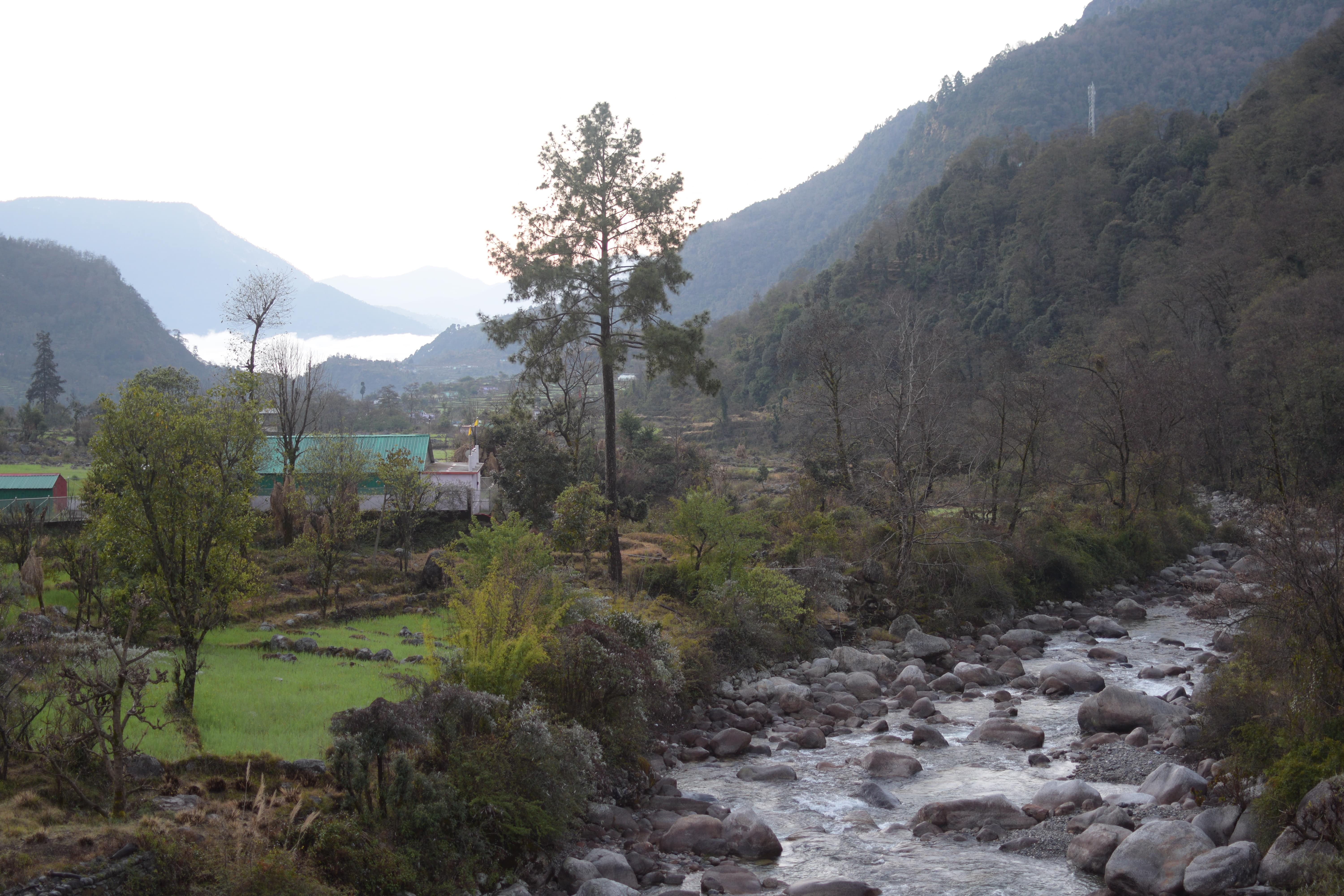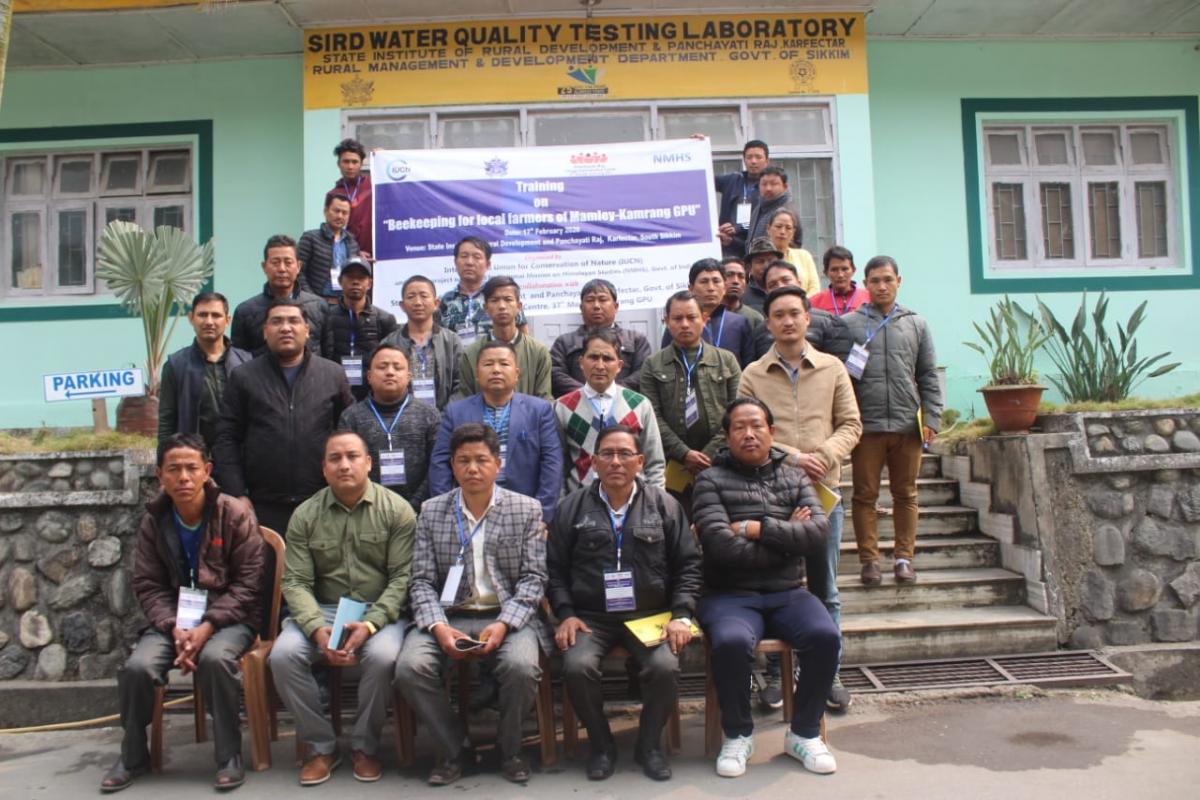Less is more: Climate-smart agricultural techniques maximise income and land productivity
In Badadiya village in Odisha, India, agriculture generates little income – yet many households are forced to rely on it for lack of viable alternatives. Most of the land in the area is being converted to prawn farms, and the damage to the environment and to social equity that comes with prawn farming makes it unsustainable in its current form.
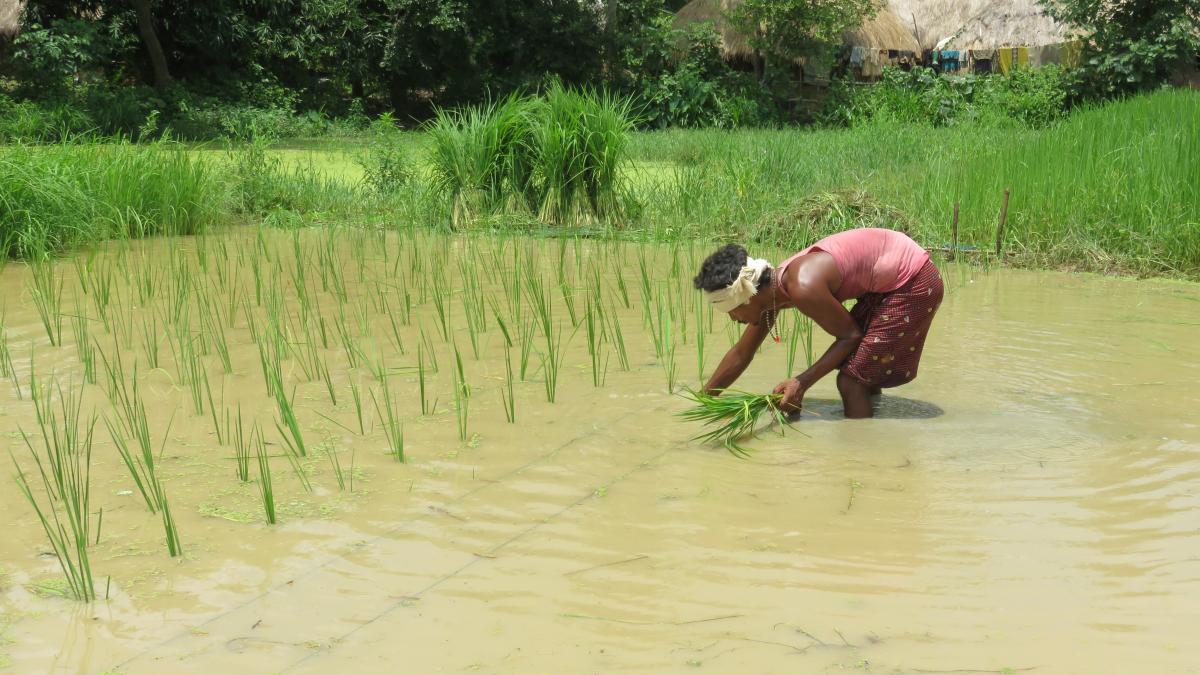
Straight-row transplanting reduces the cost of rice seed
Photo: © NEWS
From July 2016 to August 2017, the Nature, Environment, and Wildlife Society (NEWS) implemented a project, with support from Mangroves for the Future (MFF), to promote climate-smart agricultural techniques and make agriculture a more viable livelihood option. Some of these techniques include the use of vermicompost, a type of compost made by earthworms, as an alternative to chemical fertilisers; crop rotation; planting of local crops; and the use of natural rather than chemical pesticides.
After attending a village council meeting on the project, Renubala Dhal, a farmer in the village, was one of 30 beneficiaries who volunteered to participate.
Following the training sessions provided by NEWS, Renubula learned how to make natural pesticides out of readily available resources like neem, red chilli, and cow urine; understood how using a local variety of rice more adapted to the climate would allow her to purchase less than half the seed while still yielding the same amount of crop as before; and adopted a more resource-efficient technique, called ‘straight-row transplanting’, to transfer rice seedlings from nurseries into paddies.
She has also paired straight-row transplanting with a new technique to weed between the rows of rice using a tool called a rotary weeder that cuts and threshes the unwanted vegetation, which then decomposes and fertilises the paddy.
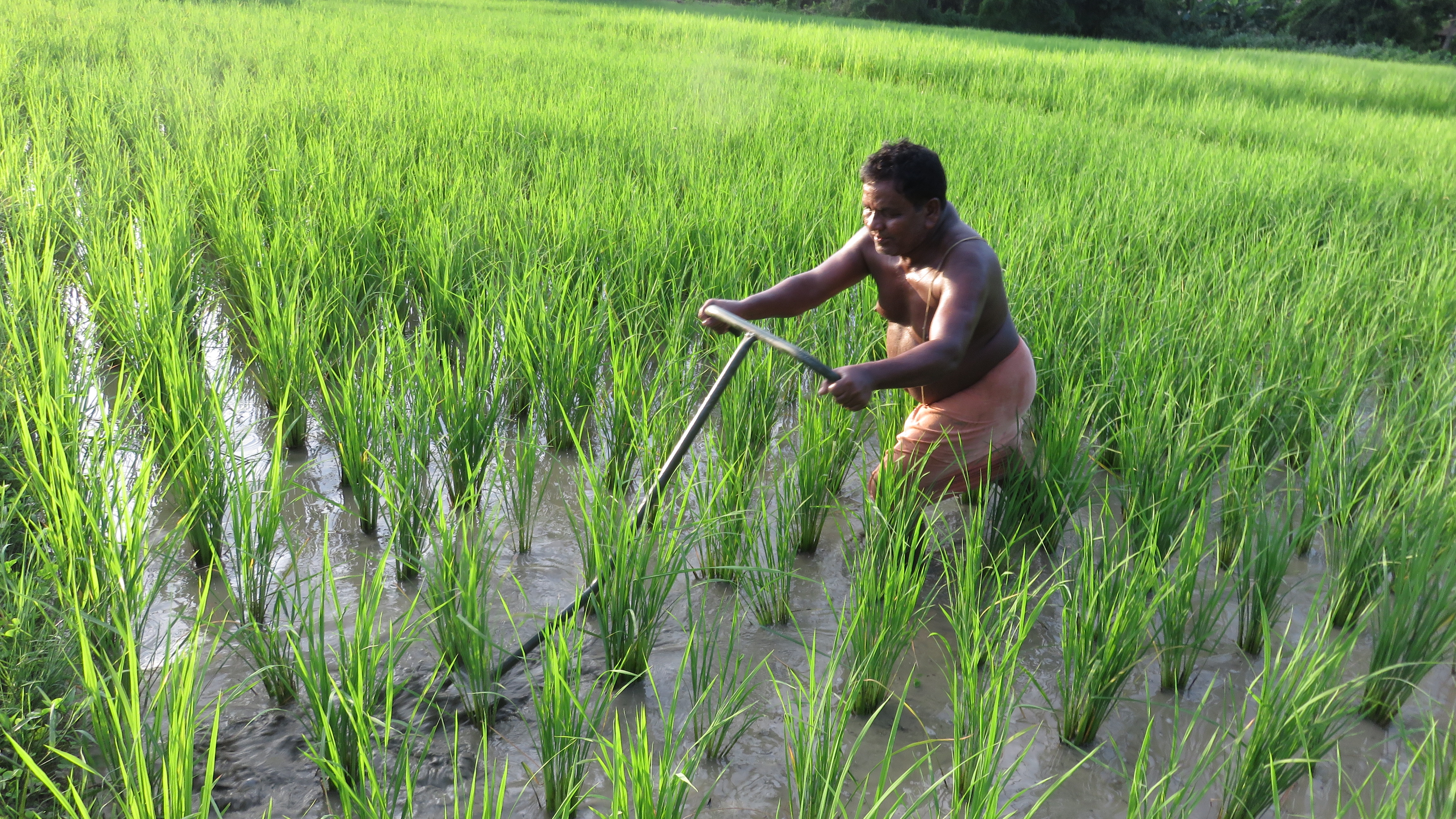 This rotary weeder helps transform harmful plants into helpful fertiliser
Photo: © NEWS
This rotary weeder helps transform harmful plants into helpful fertiliser
Photo: © NEWS
Renubula also learned about seed purification and segregation to obtain the best seeds, following the principle that less is more; it is better to plant fewer better quality seeds, as opposed to as many seeds as possible regardless of quality, in order to maximise the productivity of the land. As a result, the water requirement for her vegetable crops has been reduced by over 50 litres per day.
Using crop rotation techniques, and with seeds supplied by the government, Renubala also grows potatoes, eggplant, a local variety of papaya, and onions.
“These new farming techniques are very time-consuming, but it’s worth it,” says Renubula. “Production costs are very low, and the vegetables are much tastier and more nutritious.”
While potato production did not increase as a result of the project, the chemical-free potatoes last longer, allowing Renubala to store them for up to eight months and sell them at a higher market price during the low season instead of immediately after harvest. She is also saving money on seeds and water, as the cost of production with the new climate-smart techniques is 20-25% lower.
Together, the lower production costs and higher market price for Renubala’s products have resulted in a 40% increase in income in a single year. “I have invested some of my extra income in raising poultry,” she explains. “This is manageable, now that the other household work is easier and I have a bit more time.”
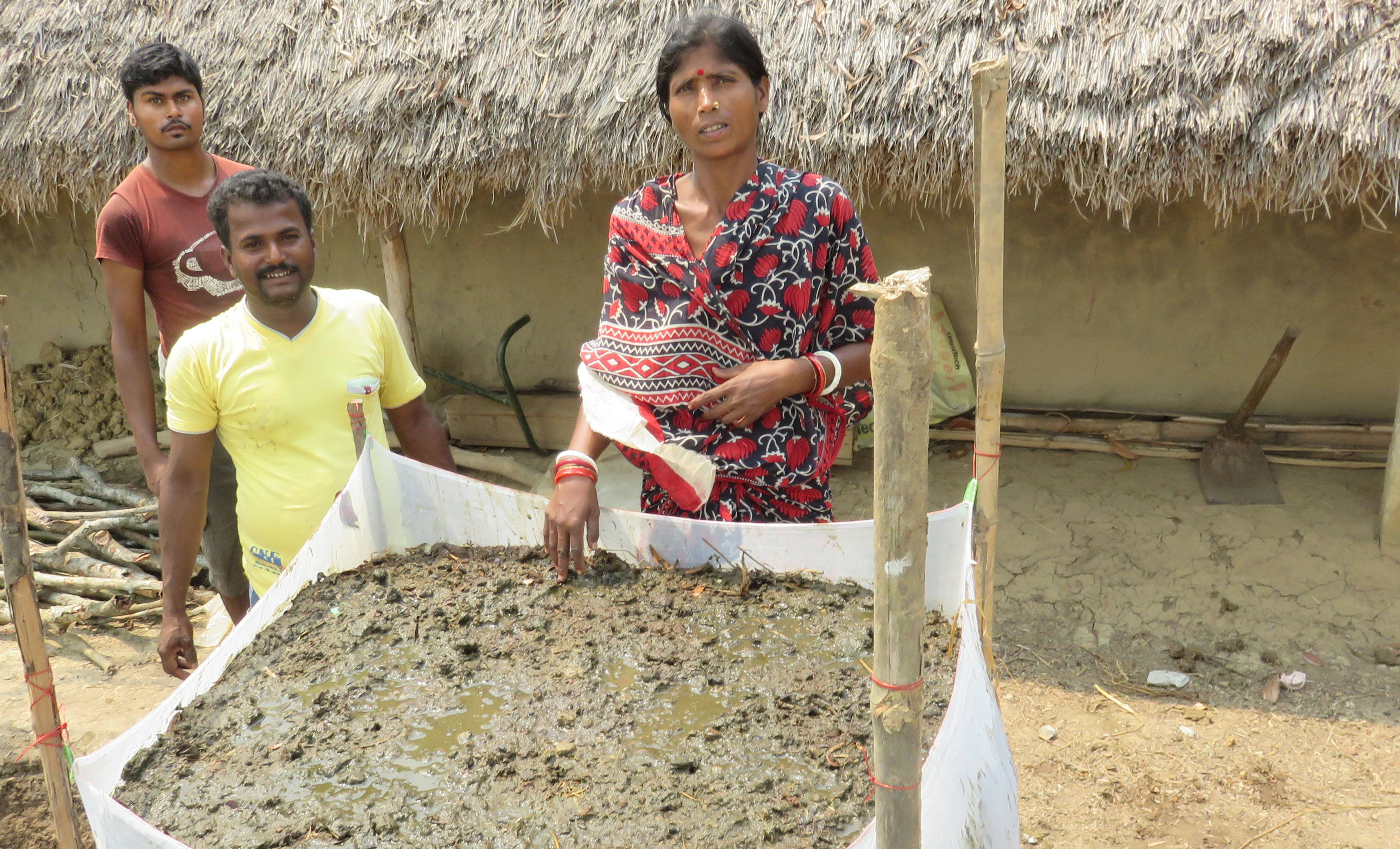 Renubula Dhal shows NEWS the vermicompost she uses to grow her crops
Photo: © NEWS
Renubula Dhal shows NEWS the vermicompost she uses to grow her crops
Photo: © NEWS
Golak Ch Behera, another farmer from the same village, also adopted the techniques and is excited about the results.
“By planting three seeds at a time in 16 pits, I have produced over 60kg of cucumber. And because these cucumbers are free of chemicals, they last longer and taste better. I can sell them for INR 25-30 (US$ 0.39-0.47) per kilogramme, well above the INR 18-20 per kilogramme fetched by the ones produced using chemical fertilisers and pesticides,” said Golak. His okra crop has also benefitted from the new farming techniques, having yielded 50kg instead of the usual 38kg per year.
In order to ensure that this new initiative remains sustainable, the local Agriculture Department is supporting the beneficiaries by monitoring their progress and providing free crop seeds. Based on recent findings, they have identified a need to integrate animal husbandry and aquaculture techniques into current crop cultivation practices, for which NEWS has already begun providing training as part of the project. Two project beneficiaries have already taken it upon themselves to begin cultivating fish, which has so far proven successful, and another two - including Renubula - have begun to raise chickens for their eggs. This animal husbandry component is expected to improve the long-term ecological and economic benefits of the crop cultivation project.
Mangroves for the Future (MFF) is a partnership-based regional initiative which pro-motes investment in coastal ecosystem conservation for sustainable development. MFF focuses on the role that healthy, well-managed coastal ecosystems play in build-ing the resilience of ecosystem-dependent coastal communities in Bangladesh, Cambodia, India, Indonesia, Maldives, Myanmar, Pakistan, Seychelles, Sri Lanka, Thailand and Viet Nam. The initiative uses mangroves as a flagship ecosystem, but MFF is inclusive of all types of coastal ecosystem, such as coral reefs, estuaries, lagoons, sandy beaches, sea grasses and wetlands. MFF is co-chaired by IUCN and UNDP, and is funded by Sida, Norad, Danida and the Royal Norwegian Embassy in Thailand.
